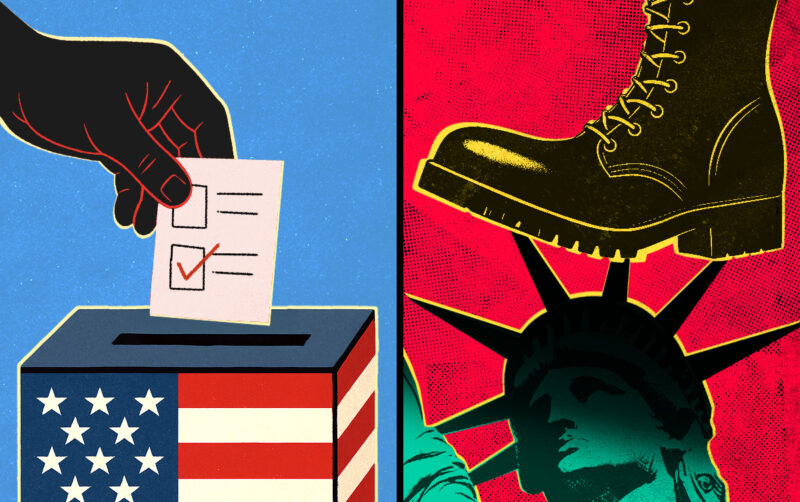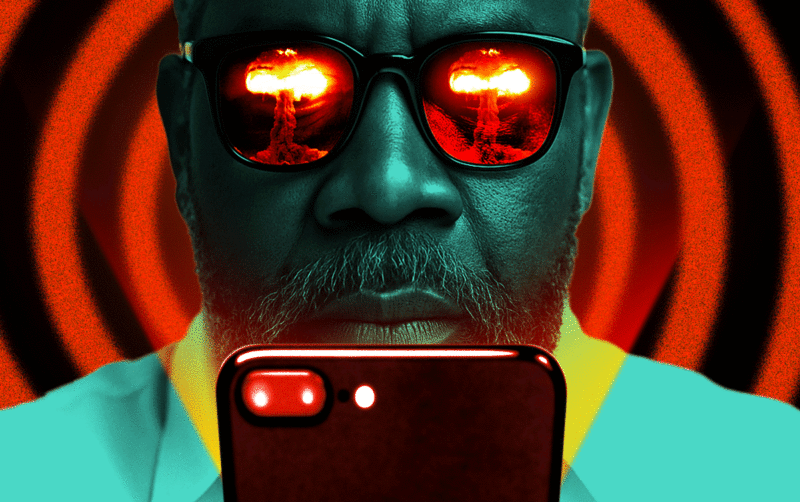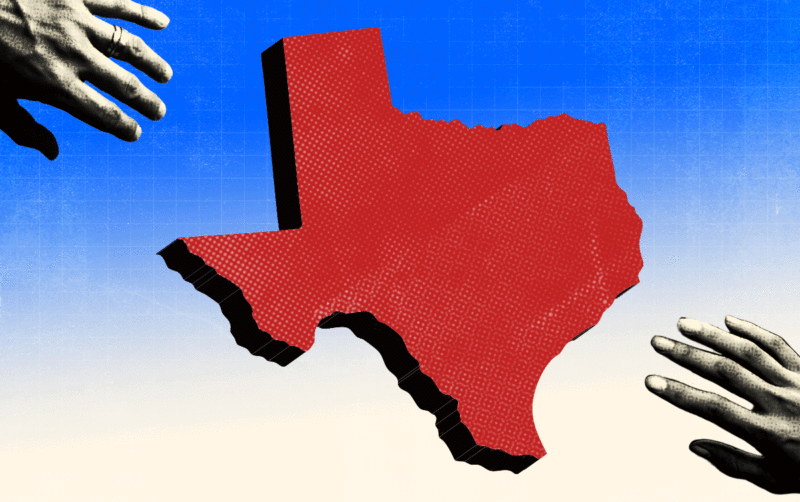Editorial
Why Democracy—Not Fascism—Can Bring Us Back Together
Modern discourse has a bad habit of turning everything into hyperbole. Scroll long enough and you’ll find someone calling their neighbor, their boss, or their least favorite barista “fascist.” And somewhere along the way, we seem to have forgotten what fascism actually looks like. Some say that life under fascism would actually be better (it wouldn’t). While others say that Americans currently live under a fascist regime (we don’t).
To help people sort things out, let’s compare fascism and democracy and explain why only the latter can bring people back together.
Human dignity vs. dehumanization
The first trick of fascism is to strip people of their humanity. Once someone is labeled an “enemy,” “traitor,” or “problem,” cruelty suddenly looks righteous. Mussolini said it outright: “Everything in the State, nothing outside the State, nothing against the State.” In that world, individuals don’t matter. They’re just raw material for the machine.
Democracy says the opposite. Its foundation is that everyone has equal representation. Rights like free speech, due process, and voting aren’t just paperwork; they’re acknowledgments that your voice matters, even when you’re unpopular or outnumbered. You’re not a cog. You’re a citizen.
And that distinction is huge. Polarization thrives when people feel erased or powerless. Democracy at its best humanizes by design: it affirms that every person belongs and every person counts.
Inclusion vs. scapegoating
Fascism doesn’t know what to do with difference except weaponize it. It thrives on scapegoats (immigrants, minorities, political opponents); anyone can be cast as “the problem.” That’s how neighbors stop trusting neighbors and fear spreads faster than facts.
It also flattens complexity. People get shoved into crude boxes: “us” versus “them,” loyal or disloyal. That makes life emotionally simple but socially explosive. If your identity doesn’t fit the mold, you’re an outsider.
Democracy, though, is built for complexity. It accepts that societies are messy coalitions of people with clashing priorities. A rancher and a software engineer may disagree on a dozen things, but both have a stake in schools, roads, and safety. Democracy’s job is to turn those differences into debates, compromises, and sometimes grudging cooperation.
That’s not weakness. It’s resilience. Inclusion broadens the circle of belonging and transforms diversity from a threat into an asset. That’s how you lower polarization: by giving people a reason to see themselves on the same team, even when identities clash or disagree.
Channeling opposition vs. crushing dissent
In fascist systems, disagreement is treated as danger. Opposition parties are outlawed, journalists jailed, protesters silenced. The appearance of unity is just fear wearing a mask.
Democracy doesn’t erase conflict. It organizes it. Elections, legislatures, courts, and town halls exist so we can hash out differences without bloodshed. Disagreement isn’t a bug in the system; it is the system.
This matters for depolarization. Real trust doesn’t mean everyone thinks alike. It means we accept that people we disagree with are still legitimate players in the same game. Democracy gives us rules, guardrails, and institutions that let us keep playing together, no matter how heated it gets.
No, the United States is not a fascist society
The United States is not a fascist society today. Fascism describes a system where one party or leader holds unchecked power, silences opposition, controls the press, and often uses violence or scapegoating to maintain control.
By contrast, the U.S. still has competitive elections, an independent judiciary, a free press, and space for dissent—all features that don’t exist in a fascist regime.
That said, it’s also true that some fascist tactics (like dehumanizing opponents, spreading disinformation, or undermining trust in elections) show up in our politics. These warning signs don’t make America fascist, but they remind us that democracy isn’t self-sustaining. It survives only if citizens demand accountability, defend institutions, and keep participating.
So the question isn’t just “are we fascist?” It’s “are we strengthening democracy, or weakening it?”
The answer depends on the choices we make together.
Only democracy depolarizes for real
Of course, not all Americans are sold on democracy. Some see it as a system that has mostly benefited the privileged, leaving out whole communities from its promises. Others argue what we need isn’t more democracy at all, but a strongman to “get things done.”
But for all its flaws, democracy is still the only system that gives people a voice and holds power accountable. Abandoning it doesn’t fix inequality. It just hands more control to the few. Fascism, by contrast, promises unity but delivers repression. It silences difference, crushes dissent, and leaves division to fester until it explodes.
Democracy remains the only system that can turn disagreement into progress. It affirms human dignity, includes diversity instead of weaponizing it, and channels opposition into debate instead of fear. If we want to break the cycle of mistrust and hostility, the answer isn’t fantasies about strongmen or secession. It’s doubling down on democracy.
Because depolarization isn’t about everyone agreeing. It’s about remembering we’re still in this together.
—Alex Buscemi (abuscemi@buildersmovement.org)
Keep Reading

Why Democracy—Not Fascism—Can Bring Us Back Together

Doomscroll Detox: 6 Steps to Take Back Your Sanity
